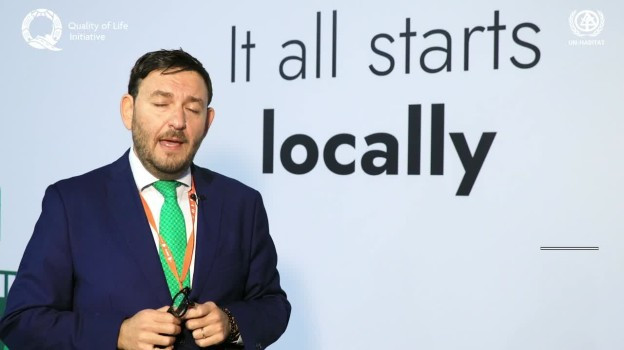
IN this digital age, the fight against corruption has found a powerful ally in artificial intelligence (AI). This technology, with its ability to analyse large volumes of data and detect hidden patterns, offers unprecedented tools to identify and prevent fraudulent acts.
However, its practical implementation is still very limited and not without its challenges. We explore how AI can transform the fight against corruption and reflect on the governance, organisational, human, and ethical dilemmas that this technological revolution entails.
In a paper entitled Artificial Intelligence and the fight against corruption, Amalia López Acera outlines several potential applications of AI:
Public procurement
Control of public tenders by monitoring to detect anomalous patterns, such as tailor-made tenders or tenders always won by the same company.
Review of public contracts for unusual clauses or potentially corrupt conditions.
Public audits
Budget audits to analyse expenditures by municipalities and other public administrations, identifying irregular allocations or unjustified expenditures.
- Harvest hay to prevent veldfires: Ema
- Public relations: How artificial intelligence is changing the face of PR
- Queen Lozikeyi singer preaches peace
- Public relations: How artificial intelligence is changing the face of PR
Keep Reading
Control of subsidies and public aid to detect duplication or inappropriate beneficiaries.
Pattern detection
Detection of anomalous patterns through machine learning, analysing large volumes of data for indicators of fraudulent activity in financial transactions, tenders, contracts or grants.
Text analysis when reviewing documents and emails for suspicious terms or patterns, such as in the case of false reports.
Control of conflicts of interest by identifying possible relationships between public administration staff and private companies.
Utilities
Detection of irregularities in the management of public services by identifying possible cost overruns, deficiencies or bad practices.
Validation of official documents, verifying the authenticity and consistency of documents submitted in administrative procedures, avoiding forgeries.
Data analysis and protection
Database integration: by connecting public databases, information can be cross-referenced and possible fraud can be detected more efficiently.
Protection of sensitive data by alerting about unauthorised access or manipulation of government databases.
Optimisation of investigations by recommending steps or actions based on previous cases, thus optimising resources and investigation times.
Information systems
AI-powered anonymous whistleblowing platforms to ensure whistle-blower protection and the validity of information received.
Predictive systems to help forecast areas or sectors with a higher risk of fraud based on historical data and current trends.
Training in ethics and public integrity for public administration staff and citizens, adapting the content to the real needs of each person detected by the AI itself.
Legislation and transparency
AI tools that explain how certain government or corporate decisions are made, reducing the possibility of undue favouritism.
Review of legislation and regulations: AI can analyse and compare legislation from different regions or countries to propose modifications that reduce legal loopholes that allow corruption.
AI can potentially help reduce corruption in Zimbabwe in several ways:
Improved detection: AI systems can analyse large datasets to uncover hidden patterns and anomalies that may indicate corrupt behaviour in government processes, public procurement, and financial transactions.
Enhanced transparency: AI-powered platforms can provide citizens with direct access to government information and services, reducing the need for intermediaries and minimising opportunities for bribery.
Automated monitoring: AI tools can continuously monitor public procurement processes, government spending, and other areas prone to corruption, flagging suspicious activities for investigation.
Citizen reporting: AI-based platforms can enable citizens to easily report corruption and grievances, which can then be routed to relevant authorities for action.
Data-driven decision making: By analysing public opinion and feedback, AI can inform policy decisions that better reflect citizens' needs rather than elite interests.
Digitisation of services: Implementing AI-powered digital platforms for government services can reduce face-to-face interactions where bribes might be solicited.
Specific AI applications that could be beneficial in Zimbabwe include:
AI-powered anomaly detection systems for public procurement, particularly useful in the public health sector.
Machine learning models to predict corruption by analysing local economic and real estate data.
AI-enabled performance management systems in the public health sector to reduce bias in staff evaluations.
AI-powered platforms for citizen reporting of corruption.
AI analysis of mobile and social media data to detect corruption patterns, though this raises privacy concerns.
While AI demonstrates significant potential in the fight against corruption, its efficacy is contingent upon the existing level of digital infrastructure and data systems.
The implementation of these tools necessitates careful consideration of ethical issues, including privacy protection and the mitigation of algorithmic biases.
For Zimbabwe to effectively leverage AI in anti-corruption efforts, a comprehensive digital upgrade of its systems is paramount. Moreover, the success of such initiatives hinges on the genuine commitment of authorities to embrace and implement these AI-driven interventions.
Developments in the AI space in the past 7 days
Microsoft is constructing a new AI-focused datacentre in west London called Park Royal, highlighting the company's push to advance artificial intelligence. However, this expansion is creating challenges for Microsoft's goal of achieving carbon negativity by 2030 due to increased emissions from datacentre operations.
The energy demands of AI technologies, particularly large language models like ChatGPT and Gemini, are raising concerns about escalating electricity consumption and carbon emissions. Tech giants are actively seeking clean energy solutions to meet their climate objectives while expanding AI infrastructure.
There are ongoing discussions about the environmental impact of AI, including considerations of carbon taxes and the strain on renewable energy resources as AI's energy demands increase.
Companies like Amazon, Google, and Meta are striving for net-zero carbon emissions and emphasising renewable energy integration in their AI operations.
The continued development of AI systems has presented governments and courts worldwide with critical issues related to intellectual property.
Recent statistics show that the global AI market is valued at over US$196 billion and is projected to increase by over 13x in the next seven years. The AI industry is expanding at a compound annual growth rate (CAGR) of 38,1% between 2022 to 2030[4].
These developments highlight the rapid growth and challenges in the AI space, particularly regarding energy consumption, environmental impact, and market expansion.
- Bangure is a filmmaker with extensive experience in newspaper production technologies. He has considerable exposure to IT networks and Cloud. He is an AI enthusiast and scholar. — naison.bangure@hubedutec.com










